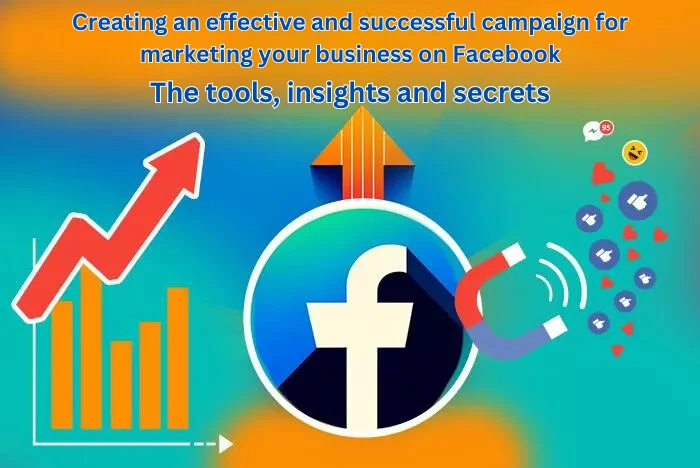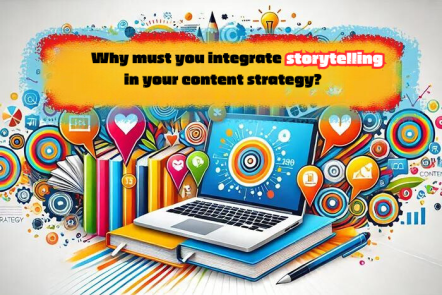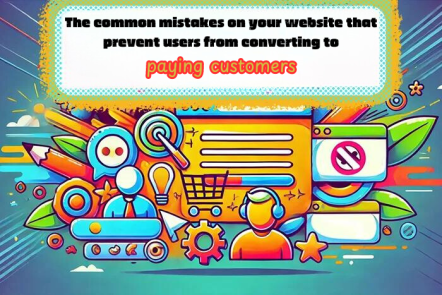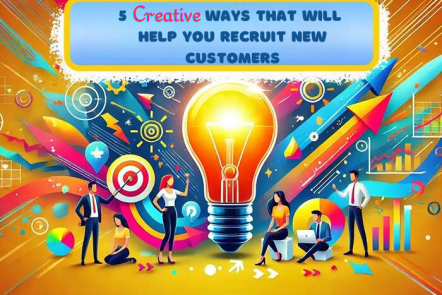When looking at Digital Marketing channels, Facebook remains a super platform that allows you to be exposed and interact with your target audiences. With its massive user base and powerful advertising tools, Facebook opens the door to an abundance of unprecedented opportunities for businesses to connect with potential customers and drive meaningful results by marketing a business on Facebook. However, creating a highly effective campaign on this platform requires more than just throwing away a few sponsored Facebook posts and hoping for the best. This requires careful planning, strategic execution and continuous optimization. In this article, we’ll explore the basics for planning and executing successful Facebook campaigns, as well as how to leverage Facebook data and analytics to improve campaign performance.
Facebook Business Marketing Basics
Marketing a business on Facebook starts with planning and building a strategy. Every campaign needs to be carefully planned, and this requires you to first set goals that will guide you every step of the way. To do it right, follow these guidelines, as simple and convenient as possible, to make it easy and easy for you:
- Set clear goals – Before you dive into building a Facebook campaign, set clear and measurable goals. Whether your goal is to increase brand awareness, drive website traffic, generate leads or increase sales, a clear objective will guide your campaign strategy and help you measure success. If there is no clear goal, what will happen is that the advertising budget will be exported and the results will be zero.
- Know your audience – Understanding your target audience is essential for creating relevant and engaging content. Use Facebook’s targeting options to narrow down your audience based on demographics, interests, behaviors and more. The more specific you can be with your targeting, the more likely you are to reach the right people with your ads.
- Create compelling content – Invest time and resources in creating high-quality, engaging ad creatives. Whether it’s eye-catching visuals, compelling copywriting or interactive elements, your ads should capture attention and resonate with your audience. Test different ad formats and types to see what resonates best with your target audience.
- Optimize for mobile – Since most Facebook users access the platform through mobile devices, it’s important to ensure that your ads are optimized for mobile viewing. Use mobile-friendly formats, such as vertical videos and carousel ads, and ensure fast load times to maximize mobile engagement.
- Track and optimize – continuously track the performance of your ads and perform data-driven optimizations to improve results. Test different targeting options, ad formats, and adjust your strategy based on what works best. Don’t be afraid to experiment multiple times to find the winning combination for successful sponsored campaign management. If you can’t produce initial results within 72 hours, check where the problem is, whether in copywriting, creative, or the audience that sees your ads and is indifferent to what you see.
Leveraging Facebook data and analytics to improve campaign performance
Facebook business marketing succeeds because Facebook provides a wealth of data and analytics tools to help you track the performance of your campaigns and make informed decisions to optimize results. Here are some key metrics to pay attention to:
- Reach and Impressions – Measure the reach and impressions of your ads to understand how many people see your content. This can help you gauge the overall visibility of your campaign. If you want to collect new leads, try a lead campaign on Facebook.
- Engagement metrics – Track metrics such as likes, comments, shares and clicks to measure engagement with your ads. High engagement indicates that your ads resonate with your audience and lead to interactions. To increase engagement, try an engagement campaign on Facebook.
- Conversion tracking – Set up conversion tracking to measure actions taken by users after clicking on your ads, such as website visits, form submissions or purchases. This allows you to attribute conversions directly to your Facebook campaigns and measure ROI. A FACEBOOK CONVERSIONS CAMPAIGN REQUIRES AN UNDERSTANDING OF SETTING UP EVENTS, CREATING THANK YOU PAGES, IMPLEMENTING PIXELS, AND THAT’S IN ORDER FOR THE MEASUREMENTS TO BE HIGH QUALITY AND WE CAN CONTINUE TO DELIVER RESULTS ON A REGULAR BASIS, WE LOVE A SYSTEM THAT RUNS. We can tell you about campaigns we have created in recent years that run automatically for long periods with slight changes here and there, but this is after a long investigation of the target audiences and what they like and where exactly we perceive them with our offer.
- Audience insights – Use Facebook’s Audience Insights tool to gain deeper insights into the demographics, interests and behaviours of your target audience. This information can help you refine your targeting strategy and create more relevant and effective ads.
- Ad Performance – Analyze the performance of individual ads within your campaign to identify top performance and underperforming ads. Allocate more budget to high-performance ads and make adjustments to improve the performance of low-performing ads. You need to understand whether your ad’s CTR is high or low, as well as the average frequency a person sees your ad, these metrics can provide deep insights.
Advanced actions to improve Facebook Marketing results for your business
In addition to tracking and analyzing key metrics, there are a number of advanced steps you can take to further optimize your Facebook campaigns:
- A/B testing – Run split tests with different ad creatives, ad types and targeting to identify what resonates best with your audience. Test one variable at a time and use statistical significance to determine the winning variation.
- Lookalike Audiences – Create Lookalike Audiences based on your existing customer data to find new potential customers who share similar characteristics and behaviors. Lookalike Audiences can help you expand your reach and target users who are more likely to convert.
- Dynamic ads – Use dynamic ads to automatically show personalized content to users based on their previous interactions with your website or app. Dynamic ads allow you to deliver relevant and timely messages to users, increasing the likelihood of conversion.
- Custom Audiences – Create Custom Audiences based on specific criteria, such as email lists, phone lists, website visitors, your video views or engagement with your Facebook Page. Custom Audiences allow you to target users with tailored messages based on their past interactions with your brand.
By implementing all of these actions and leveraging Facebook’s data and analytics tools, you can take your campaigns to the next level and achieve even greater success.
Tips from champions to improve campaign performance
- Facebook advertising offers two main types of ads: boosting existing posts and creating new ads that don’t appear on the page (dark posting). Both are managed through Ads Manager. The recommendation is to boost existing posts through Ads Manager and avoid using the “Boost Post” button that appears below posts. This will ensure better efficiency and cost savings and allows testing variations and targeting options.
- Before advertising begins, implement the Facebook pixel on your website. It serves two main purposes: building accurate audiences and measuring campaign results. It also allows you to set actions such as viewing content, adding to cart, or converting. To embed your pixel, go to Facebook Events Manager, select Connect Data Source, name your pixel and specify your URL. For platforms like WordPress or Wix, you can opt for partner integration; Otherwise, manual application or sending instructions to the application for unsupported platforms is required.
- Choosing “campaign budget optimization” when creating your multi-ad campaign allows you to set up a comprehensive budget. Facebook’s advertising system then automatically allocates that budget across your ad set, prioritizing those that drive the most cost-effective results.
In conclusion,
Among the many ways to market a business, Facebook stands out as a powerful platform that can provide significant exposure. However, creating a highly effective Facebook campaign requires careful planning, strategic execution and continuous optimization. By following the basics outlined in this article and leveraging Facebook’s data and analytics tools, you can create campaigns that resonate with your target audience, drive meaningful engagement and deliver measurable results. Whether you’re looking to increase brand awareness, drive more traffic to your website or increase sales, Facebook offers powerful advertising tools to help you achieve your marketing goals. By staying agile, experimenting with different strategies and leveraging data-driven insights, you can continually improve your Facebook campaigns to get better results and be hugely successful.




